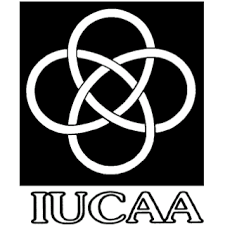Gravitational Waves (GWs) are ripples in the fabric of spacetime. When incident on two free falling Test Masses, they produce strains in spacetime — change in length divided by length — that are of the order of 10^{-22}, if emanated from typical astrophysical sources such as compact binary coalescences (CBCs). CBCs detected so far are binary neutron star mergers, binary black hole mergers and neutron star black hole mergers. Detectors that observe GWs from CBCs achieve such an extreme sensitivity to strain through large (4 km) suspended Michelson interferometers. The simple Michelson interferometer is ideally suited for detecting quadrupolar waves generated by CBCs because of its naturally differential geometry. Its response is further enhanced by introducing Fabry-Pérot optical cavities into the arms, as well as, enhancing the intracavity optical power by employing power recycling and signal recycling techniques. The suspended mirrors of the interferometer act as “Test Masses” which track the contraction and expansion of space as a gravitational wave passes by. The resulting change in the distance between these Test Masses is measured by heterodyne techniques utilizing phase modulated laser beams, known as the Pound-Drever-Hall technique.
This workshop is designed to introduce MSc/early-PhD students to GW Instrumentation. Its purpose is: “To spread the GW Instrumentation Community Nationwide in view of the upcoming LIGO-India Megascience Project”. It caters to roughly 10 to 15 students. At the start of the course, a few hours are dedicated to impart the necessary theoretical background and introduction to the field of GW detectors. This introduction would cover basics of GW generation, their interaction with Test Masses and the response of the detector to GWs. This is followed by 10 laboratory sessions and 5 demo sessions spread out over 3 weeks. Typically the lab sessions are 3 hours long. The intent of this course is to impart the basics of enhanced Michelson Interferometers used in the detection of GWs. The technology employed in these detectors is broken down into its simple elements. These include pendular suspensions, displacement sensors, voice-coil actuators, length control of a Fabry-Pérot cavity, etc. Associated instrument science concepts are also covered, such as limiting noise sources and noise-budgeting. These are introduced through a series of simple measurements on table-top apparatuses. The course work targets the following major topics:
This workshop is designed to introduce MSc/early-PhD students to GW Instrumentation. Its purpose is: “To spread the GW Instrumentation Community Nationwide in view of the upcoming LIGO-India Megascience Project”. It caters to roughly 10 to 15 students. At the start of the course, a few hours are dedicated to impart the necessary theoretical background and introduction to the field of GW detectors. This introduction would cover basics of GW generation, their interaction with Test Masses and the response of the detector to GWs. This is followed by 10 laboratory sessions and 5 demo sessions spread out over 3 weeks. Typically the lab sessions are 3 hours long. The intent of this course is to impart the basics of enhanced Michelson Interferometers used in the detection of GWs. The technology employed in these detectors is broken down into its simple elements. These include pendular suspensions, displacement sensors, voice-coil actuators, length control of a Fabry-Pérot cavity, etc. Associated instrument science concepts are also covered, such as limiting noise sources and noise-budgeting. These are introduced through a series of simple measurements on table-top apparatuses. The course work targets the following major topics:
- Basics of Gravitational Waves and their detection
- Interferometer Sensing and Control
- Suspensions
- Seismic Isolation
- Data acquisition, feedback control, and related topics
- Detector characterisation and calibration
Venue: IUCAA, Pune
Date: November 10 - 29, 2024
Scientific Organising Committee:
- Prof. R. Srianand (IUCAA)
- Prof. Sanjit Mitra(IUCAA)
- Prof. Shasvath Kapadia (IUCAA)
- Dr. Suresh Doravari (IUCAA)
- Dr. Shivaraj Kandhasamy (IUCAA)
- Dr. Manasadevi Thirugnanasambandam (IUCAA)
There will be no registration fee for the meeting.
Local hospitality, including lodging, meals, travel to/from station/airport, as well as travel by train (sleeper non-AC round trip), will be covered as per IUCAA norms
For any queries: Please write email to - events@iucaa.in
